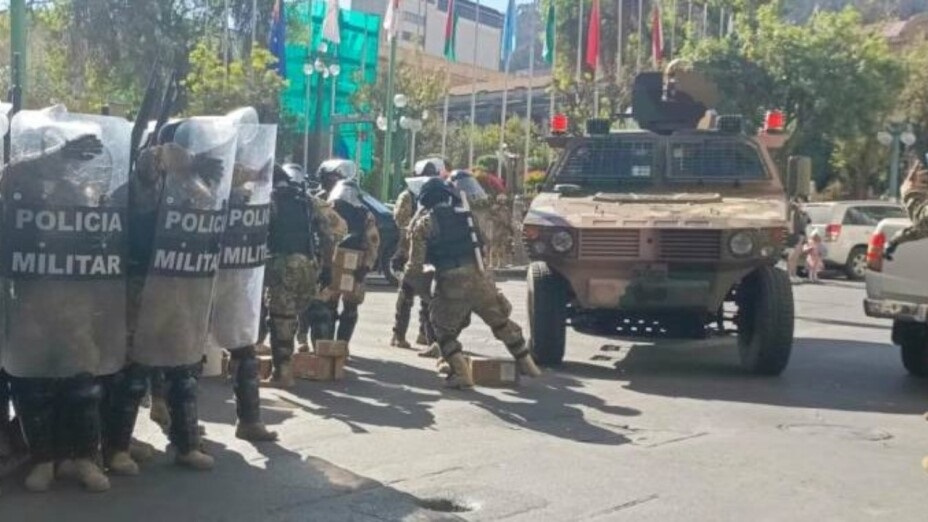
By Roberto Morejón
The investigations into the attempted military coup d'état in Bolivia reinforce the statements of President Luis Arce, who confronted the leader of the attempt, in the sense that the former head of the army, Juan José Zúñiga, had accomplices.
In an interview with the Russia Today network, the president suggested the idea that external factors as well as civilians and other soldiers would have been close to the dismissed army chief, advised him or whispered ideas to him.
More than twenty active military personnel, retired soldiers and civilians were initially arrested as part of the investigations by the Prosecutor's Office and the Public Ministry into the attempted riot on June 26.
The location among the detainees of the three top former commanders of the Armed Forces, including General Zúñiga, highlights the scope of the destabilizing plans.
According to Zúñiga, the conspiracy was born last May and the ideologue was Pastor Aníbal Aguilar, a member of the National Christian Council, who appeared in the media as an analyst.
Arce's rapid appointment of a new command of the armed forces, his call to social organizations to mobilize in defense of democracy, and the support of the international community for the constitutional government, contributed to the withdrawal of the mutineers.
It is not something simple in a country with a long history of 39 successful or failed coups, which is why military sectors still believe in the viability of their intrusion into politics, prohibited by the Constitution.
Despite the first testimonies of the conspirators in the revolt and the statements offered by Arce about the hours spent in Plaza Murillo and Palacio Quemado, the hegemonic press, right-wing forces and other people fuel the legend that everything had been a setup. of the dignitary to gain support.
The Head of State emphasized that Zúñiga acted on his own and tried to justify himself when he was arrested. Arce described it as outrageous that they wanted to involve him in a coup due to personal appetites or perhaps something more.
The attempts to divert attention from the seriousness of the military attack on the management of the government, whose ministers Zúñiga sought to change, do not favor the unavoidable investigation.
An investigation that could also point to the hypothesis of whether external factors would be behind the insubordinates, with the interest of seizing lithium, rare earths and water sources in Bolivia.

